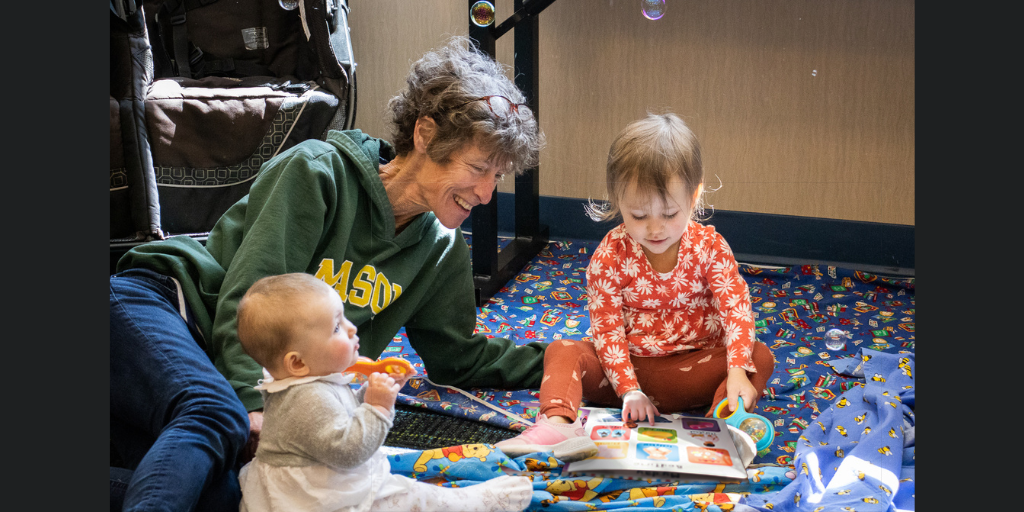Fostering Learning and Literacy in Childhood and Beyond
November is Family Literacy Month. HCPL recognizes the power of learning together and offers resources that support literacy and learning for everyone in your family. Preparing your little ones for kindergarten is just the first important step in a lifelong journey of education and discovery. Read on for more about kindergarten readiness tips and resources to support literacy in your family’s early years and beyond.
CHILDHOOD LITERACY & LEARNING
Understanding Kindergarten Readiness
Kindergarten is a monumental milestone for both children and their families and is more than just acquiring academic skills; it encompasses cognitive, social, emotional, and physical development. The Virginia Kindergarten Readiness Program (VKRP) outlines four key areas of school readiness:
- Literacy and Mathematics: Building foundational skills in reading and math, such as letter recognition and counting, helps children feel confident in their abilities.
- Self-Regulation: Encouraging children to manage their emotions and behaviors in a school setting is crucial for a harmonious learning environment.
- Social Skills: Positive interactions with peers and adults, coupled with the ability to follow instructions, play a significant role in a child's success.
- Physical Development: Developing fine motor skills for writing and gross motor skills for physical activities ensures children are ready for the physical aspects of school life.
Young learners can practice skills in these four key areas by accessing library resources like:
Storytime
Our storytimes—especially Family Fun and Ready, Play, Grow—are designed to foster a love for reading and school readiness skills. Attend storytime to enjoy stories, songs, and a variety of activities. Visit our storytime calendar to find the best fit for you and your family.
Library Programs
In addition to storytimes, the library also offers a full lineup of free programs for pre-readers (infant-5 years/preschool) where little ones can learn to play together and explore topics like art, science, music, and more. Plus, keep an eye on the calendar for Kindergarten Readiness programs in the spring!
1000 Books Before Kindergarten & Read to Me Kits
Join our 1000 Books Before Kindergarten Challenge and introduce the habit of reading into the life of your child. Pick up a paper tracking sheet from your library or participate entirely online via Beanstack. One thousand books may sound daunting, but you can log library storytimes, audiobooks, and books you’ve listened to on Storyline. Plus, that bedtime favorite counts every time you read it! You’ll be surprised by how quickly the numbers add up.
To support your reading journey, the library has 1000 Books Before Kindergarten backpacks. Each backpack contains ten curated books ideal for young readers. Read to Me kits are another great option. Each kit offers a collection of three books, a DVD, and an activity sheet to enhance the reading experience.
Library Databases
With a library card, you also have free access to the library’s research and learning databases. Once your little one enters elementary school, be sure to browse the page’s resources for K-12 learners including Tutor.com, which offers students live virtual tutoring and homework help.
Books
Browse our collection for titles that capture the many emotions that coincide with starting school. Need some recommendations? Ask a librarian! Visit, call, or use the green “Ask a Librarian” tab on the side of our website and we’d be happy to provide you with more recommended reads.
- The Color Monster Goes to School by Anna Llenas
- First Day Jitters by Julie Danneberg
- Kindergarten is Cool! by Linda Elovitz Marshall
- The King of Kindergarten by Derrick Barnes
- The Night Before Kindergarten by Natasha Wing
Additional Tips
- Read and Discuss Stories: Engage your child in reading and discussing stories to enhance critical thinking and early literacy skills.
- Practice Social Skills: Encourage your child to interact with friends, share toys, and express their feelings.
- Incorporate Learning into Daily Activities: Use everyday moments to teach counting, shape recognition, and letter identification.
- Foster Independence: Allow your child to practice dressing themselves and managing their belongings to build self-sufficiency.
Keep in mind that readiness involves a desire to learn and connect with others, rather than solely perfecting a checklist of skills.
TEEN & ADULT LITERACY SUPPORT
It’s important to keep flexing that literacy muscle beyond your earliest years. To encourage teens to read —for fun, for school, to inform and educate, to relax— the library offers a 100 Books Before Graduation Challenge. Teens can set goals for themselves, earn prizes along the way, and continue to foster a lifelong love of reading.
Literacy can be learned at any age! Adults looking to improve their literacy skills can check out our new READ Out Loud Book Group program. Presented in partnership with READ RVA, this eight-week program is dedicated to reading written works aloud in a group setting, sharing stories, and discussing text to improve literacy and fluency. Registration is required. To register, or for more information, contact Kimberly Bridges, Adult Services Programming Librarian, at Kbridges@henricolibrary.org or by phone at (804) 501-1929.
When you subscribe to the blog, we will send you an e-mail when there are new updates on the site so you wouldn't miss them.
